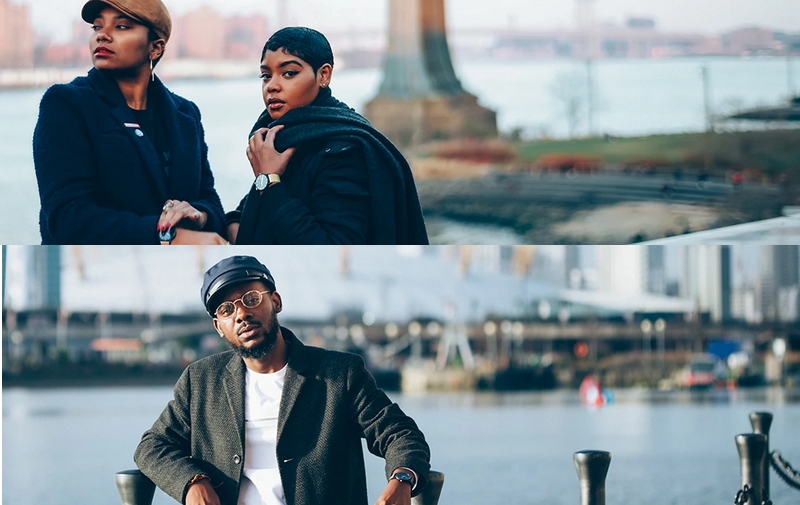What do you think when you see a luxury wristwatch? They’ve long been masculine symbols of affluence; at the most lucrative end of the market they are appreciating assets that communicate to the world how much money you can afford to invest in a small, precious item.
But when entrepreneur William Adoasi launched Vitae London in January 2016, he sought to invert the relationship between watches and ostentatious displays of wealth by championing a social justice-led approach, from ethical manufacturing to community investment. “We’ve tried to disrupt the watch industry and create a statement piece that shows the world how much you can give back.”
For every watch a customer purchases from Vitae London, two sets of school uniforms are donated to a child in sub-Saharan Africa – without this uniform, the child would be turned away from school. Through social strategies such as this, Adoasi makes clear that his enterprise’s purpose is driven by a duty towards black communities, both the diasporas and those on the African continent.
This is the first of the three principles that define Vitae London – purpose, product and people. Purpose underpins everything, then comes product: “Our products stand out because of the innovative designs that we regularly bring out. One of our watch ranges is designed to be fully interchangeable. So you can remove the bezel and strap, and one day your watch could be gold, the next day it could be rose gold, the next day it could be silver.” The third principle is people: “We’re trying to bring the community in on the journey – we allow the community to be able to buy shares in our company. We’ve had more than 600 people actually own and partake in the brand.”
Adoasi’s focus on community and the African diaspora is something he is unapologetic about. “Being a diasporan myself of Ghanaian heritage, I feel that having a brand that links the homeland to the west and to diasporans is one of our strongest niches, and I don’t really shy away from that. I’m proud that we are a brand started by the diaspora, and that the diaspora will resonate very well with it.” But Adoasi’s African focus doesn’t impact on Vitae London’s appeal to other global communities. “We’ve seen purchases from all walks of life, we’re a brand that reaches all types of people,” he says.



But as a black-owned business with an African-focused ethos, there have been significant barriers for Adoasi in securing investment and ensuring that investors understand his niche and take his market seriously. “It’s been an interesting journey. We launched in January 2016, and we only just got investment last year – through a US-based venture capital firm called Backstage Capital, which invests specifically in women and minority-led businesses. We did find issues contacting venture capitalists. It was hard for them to understand our market, our niche, our heart, the drive behind why we do what we do. So we found other methods to still be able to acquire this investment, but it did make it a more difficult process than it needed to be.”
Product distribution, too, is often an issue experienced by black entrepreneurs, which is why PayPal’s mission to expand economic opportunities for black businesses and communities is having such an impact. For Adoasi, it has been transformative. “We’ve sold in more than 35 countries now. For us, PayPal has given us an additional layer of credibility,” he says. “We’ve been trying to sell into America, and the consumer protections that PayPal offers has helped our business’s reputation.”
Why is PayPal unique? “It’s a platform that removes barriers to purchase and that’s the most important thing for an e-commerce business. I love that they have a heart for more than just financial gain,” says Adoasi. “I think in 2020 and beyond there’s going to be an upward curve with businesses thinking responsibly and beyond just the bottom line. Because you won’t be sustainable unless you have a heart for more than making money, so I really commend what PayPal is doing. It’s been a great tool for us, enabling us to scale as a business.”
Adoasi believes he has a duty to not be complicit in unsustainable practices or labour exploitation at any stage of the manufacturing, supply and distribution chain. Before selecting a factory to manufacture his watches in the key global region for manufacture, Shenzhen in China, Adoasi was clear that any worker involved in the process must be paid fairly. “We felt it would be hypocritical to be supporting one region of the world while negatively affecting another. The factories that we ended up working with had been externally audited on multiple occasions, were able to provide certificates, and we were able to go in and do our own checks as well. Sustainability and giving back has been part of our fabric from the start.”
PayPal is committed to creating new economic opportunities so that people and businesses around the world can live more financially healthy and secure lives. Learn more at paypal.com/uk
guardian.co.uk © Guardian News & Media Limited 2010
Published via the Guardian News Feed plugin for WordPress.


